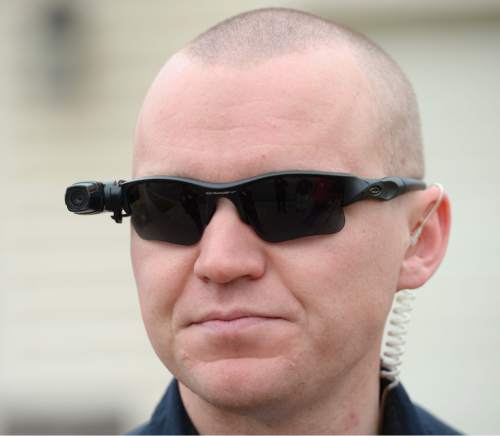This is an archived article that was published on sltrib.com in 2016, and information in the article may be outdated. It is provided only for personal research purposes and may not be reprinted.
A few days after crowds threw rocks and bottles at police after a shooting in Salt Lake City, the Utah House on Tuesday passed a bill that would consider most police body-camera videos as open records that must be released to the public.
It voted 64-5 to pass HB300, sending it to the Senate.
Rep. Dan McCay, R-Riverton, the bill's sponsor, said any videos shot in public areas would be considered public records. But videos shot on private property would presumed to be private, with several exceptions.
Those exceptions include when a law officer fires a weapon, when a video shows a crime, when encounters between an officer and someone else results in injury or death, or when someone alleges misconduct by an officer.
The bill also outlines when officers with cameras must activate them.
"It does require the officer to activate a camera prior to any law-enforcement encounter or as soon as reasonably possible for all enforcement stops, dispatch calls, field interviews, use of force, warrants, traffic stops or any other contact that becomes adversarial," McCay said.
Exceptions to that include sensitive conversations with crime victims or informants when officers believe the value of the information outweighs the value of the recording.
McCay said officers must document the reason for deactivating cameras, and their cameras must be clearly visible.
Rep. Angela Romero, D-Salt Lake City, said the bill may help build trust in police.
"Use of force has been in the spotlight due to a recent event in our capital city," she said, including big protests by hundreds after the police shooting Saturday of 17-year-old Abdullahi Omar Mohamed.
"Utah and the rest of the nation are facing a kind of unrest we have not seen in years," she said. She said after listening to people protesting the shooting on Saturday, they feel a "public betrayal of trust."
She supported HB300 as ensuring transparency "both for law enforcement and the community."
She more than HB300 is needed, and called for better conversations between the police and people who distrust them.



